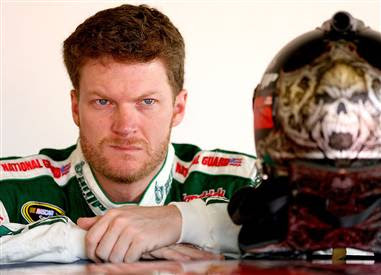Here’s a keeper from Tom Junod. Originally published in the January 1994 issue of GQ. Reprinted here with the author’s permission. His postscript follows.
He is a 49-year-old man whose father has just yelled at him. He has worked hard for his father tonight, but something went wrong, he must have made a mistake, and now he is going to his room.P
He will stay there all night, if he can; he will draw the curtains and watch his movie and stay awake until dawn. If only he could get there, if only the fame of his father did not block his way and he did not have to linger among them, like a fox among hounds.P
Junior! Yo, Junior!P
Junior! You still singing, Junior?P
Junior, where’s Nancy?P
Junior, can you give me your autograph, even if you’re only Junior? P
They do not know that the show did not go well tonight, that there were problems. All they know is that after watching the father sing at the Sands Hotel in Atlantic City, they are waiting for an elevator with the son. He does not look like the father, no, not really; he is a pale, puffy, rounded man with short hair and glasses and a face of practiced, hardened anonymity … but the blood, the blood must be the same, and for them that is almost enough.P
Hey, Junior, at least I can say I rode an elevator with Sinatra!P
Can’t they see his eyes? His face is immobile, as stiff as a slab, but his brown eyes are dancing around from one face to another, as the people surround him, a ring of smiles and shiny tans. Then one of them, the one with the yellow shirt, the plaid pants, the biggest smile, the shiniest face, grabs his elbow.P
“You must be very proud,” he says.P
“Proud?” the son asks because on that night he is not proud, because on this night he was not perfect.P
“Yes, proud to be working with your father.”P
The son smiles in a quick, pained spasm. “If I keep on working with him, maybe I’ll lose some weight!”P
“What do you mean?”P
“I mean it’s hard work,” the son says, the smile gone as suddenly as it had come.P
“But your work must be a pleasure,” the man says. His smile is gone now too, and his voice is disappointed and incredulous. “I mean, I’m a schoolteacher, and you—you work with … Frank Sinatra.”P
When you are the son of Frank Sinatra, you learn, at every turn, your place in this world. How could you not? Your very birth was a photo opportunity: you lay at the bosom of your mother, the bed surrounded by a picket of flashbulbs, and there, right next to you, as big as you, is a portrait of your father, with his smile and his cheekbones, planted on the bed by a press agent. Your name is hobbled, affixed with an abbreviation that drags behind it like a comic caboose and provides the sneering masses with an instant punch line. Frank Sinatra … Jr.?P
Junior. J.R. Frankie. The Kid. By now he ought to know his place, and if he doesn’t, his old man is more than willing to teach him. Hell, it was just a few years ago, after Junior had sacrificed his own singing career (“Such as it was,” he says) to conduct his father’s orchestra, that the Old Man offered him a lesson in the natural order, in the balance that has been struck forever between Frank Sinatra and everyone else, even his son. The Old Man had just come to the centerpiece of his show—the “saloon song,” the song of smoke and liquor, yearning and regret—and now, in front of his audience, in front of thousands of people, he asked Junior if he knew the words to “One for My Baby.”P
Yes, Junior said. He knew the words.P
“Then you sing it, and I’ll wave my arms for the orchestra.”P
So Junior sang it. He took the microphone from his father, and, yes, by God, “he sang his ass off,” the musicians say. “He tore it up.” Then the old man took the microphone back. He sat on his stool, and lit his cigarette, and drank his drink. “Now I’ll show you how it’s supposed to be done,” he said and proceeded to seize the song back from Junior, and from everyone else who has ever tried to sing it. He sang it between the darkness and the light, behind a sheath of smoke that, in the single spotlight, turned the blue of a cataract and rose into a cloud ….P
But this is not one of the stories that Frank Sinatra Jr. likes to tell: “Did that happen? I don’t remember. It must have been a long time ago.” This is a story that his men tell, the member of the band and the members of the crew, when they are stuck in a hotel somewhere and they are drinking at the bar and talking about Junior, and the way he is, and what he must carry. No, not one of them would trade places with Junior. Not one of them can even imagine what it is like to be Junior, to have a father who would do something like that to his own son, to have a father who is proud enough, fierce enough, brutal enough and big enough to present his son to a thousand faces and then turn him into a shadow.P
It’s quarter to threeP
There’s no one in the placeP
Except you and me.P
So set ’em up, JoeP
I’ve got a little storyP
I think you should know ….P
Know the words? Of course Junior knew the words. He’s stuck with the goddamn words. The words are his birthright and his fate. He knows the words to all the songs, just as he knows the names of the men who arranged them and the date of each recording and the hour each session started. He knows every line his father spoke, in every single one of his movies … knows, well, everything, practically every word that has ever snuck out of the Old Man’s famous mouth in snarl or song. As a child, he used to sit under the piano at the Old Man’s rehearsals; as a teenager, he attended, in coat and tie, the sessions that became the sound track of America, in its innocent desires and its dawning regrets; a young man, he used to wait in the wings of the stage, listening to his father cut up with the Rat Pack, absorbing Las Vegas into his very soul. Even when he left home, at the age of 19, to go out on the road, to dare open his mouth in song, he did not leave his father behind. He brought tapes of the Old Man wherever he went and listened to them incessantly, and he kept on listening to them, even when his musical mentors warned him of the dangers of emulation and urged him to go his own way. P
Know the words? Yeah, Junior knows the words. That’s why he became the Old Man’s conductor; he knows the words and his father doesn’t. Oh, sure, Junior will insist that he got the job because he himself is a singer—that Frank Sinatra needed a conductor with an intuitive understanding of his needs, and nobody can understand a singer better than another singer. Others will say that Junior got the job because he is the boss’s son, that “the Old Man wanted to do something nice for the kid,” that the two men in the Sinatra family were growing farther apart and the Old Man did what he could to stitch them together. Together, yes: It is an odd yoke for Frank Sinatra to wear, even at age 78, and on some nights it doesn’t fit—the nights when he is, as of old, in command, when he is stalking the stage and growling, when he is kicking the ass of the band and its leader. On the other nights, though … the nights when everything goes suddenly blank, and the blankness stifles the song in his throat … the nights when he can’t see his TelePrompTers and can’t hear his band … on those nights, a voice will come from behind him, from the shadows, singing the lost lines, feeding his memory, a voice that never forgets, the voice of his son, the voice of Junior.P
It is the voice of Junior tonight, singing in the heat. The air is damp and oily, the sun is a soiled smudge over the treetops, and the orchestra is stranded on the stage of an outdoor amphitheater in Atlanta, sweating out a rehearsal. In the wings of the stage, there is a small table dressed in white linen, and on top of the table, there is a bottle of Jack Daniel’s, a glass tumbler and a pack of Camels. Everything has to be just so for the Old Man, but the Old Man’s plane is delayed, and so now it is Junior who’s sitting on the stool, in a wet white T-shirt, black dress slacks and black shoe-boots, with a towel fashioned into a turban on his head, singing “Lonesome Road.”P
Weary totin’ such a loadP
Trudgin’ down that lonesome road.P
The Voice. That’s what they called the Old Man when he was a young man making them swoon. Did Junior ever have a nickname, a title? No, only the pipes, only a talent that has trapped him. He sounds just similar enough to his father to invite comparison and just different enough to make the comparison punishing. From the moment he started, the critics shoved him into the Old Man’s shadow—”Frank Sr. oozed innate musicality and phrasing,” Newsweek wrote in 1963, “and Junior, at least so far, oozes mainly mimicry”—as though he intended to compete with the greatest pop singer of the American Century, as though he had a choice and the mimicry didn’t just well up out of him, out of his genes, out of a lifetime of osmosis, out of everything he is. Look at the Kid out there, sweating bullets with his stooped shoulders and his chubby cheeks and his thick lips and his stony brown eyes—what does he have of the Old Man’s? He doesn’t have his looks or his movements or his pitiless drive. He has just the Voice, or a lounge-act version of it. And if this is his inheritance, he is forced to spend it every time he opens his mouth.P
Look down, look down, that lonesome roadP
Before you travel on.P

Why did he do it? Why did Junior decide to—dare to—become, of all things, a singer? Had he become a doctor or lawyer, his name would have been a garland, a laurel, instead of a source of comparison and rebuke. He didn’t have to sing. He didn’t burn for it, didn’t sing as an avowal of self, didn’t hear within himself a song he couldn’t contain. He just loved the music, that’s all. All his life, he wanted to be part of the sound that surrounded his father, and his voice—this flawed gift, this tinkling echo—had been his way in. He was still a kid, 19 years old, skinny and dark, playing piano at Disneyland, when he was invited to front the remnants of the Tommy Dorsey Orchestra, the orchestra that had made the Old Man a star. He opened in New York City in September 1963, in the big room of the Americana Hotel, and, although Dorsey himself had been dead for six years, Junior made the cover of Life and packed the house. Jackie Gleason, Toots Shor, Joe E. Lewis—they all wept when Junior sang his father’s hits, wept out of nostalgia and wept at the turning of time, wept listening to a kid who, on that night and every night for the next dozen years, couldn’t stand the sound of his own voice.P
True love, true love, what have I doneP
That you should treat me so?P
You couldn’t feel sorry for Junior, though, because he got what he wanted. He got a life in music. He had never dreamed of greatness—that dream was killed by the greatness of his father. He had dreamed, instead, of a kind of subsistence, of making a living with music—yes, a Sinatra dreaming of making a living—and subsistence is exactly what he got. Every nightclub, every hotel, every lounge, every dump willing to pay his rate—he played them all for twenty-five years, until 1988, when his father gave him the call.P
And now … here he is, singing onstage in Atlanta, and at last the music is his. It is Junior’s. He is singing, in the same naggingly nasal voice he has spent a lifetime training and improving, but he is at the center, in control. Strings, lean on that figure! ‘Bones, play it dirty! Drums, swing like you mean it! Yeeeaaahh!P
Then, in the descending darkness, an old man swaggers onstage, alone, with his hands thrust into the pockets of a short black satin jacket, and his eyes, even at a distance, are as blue as gas jets. He does not look at the band or at Junior but rather keeps his face turned slightly away from the eyes of any living thing. The orchestra—the world—is suddenly silent.P
When Junior approaches him, Frank Sinatra’s hands stay in his pockets.P
“Everybody’s sweating,” he says to his son. “It’s too damned hot. Why couldn’t we rehearse in a building?”P
“I wanted you to sweat,” Junior says.P
“What?”P
“I wanted you to suffer.”P
He has not sung in nearly a month, the Old Man. Out in Malibu, he worked on his tan rather than on his voice, and now, when the orchestra plays “September Rain” and he sidles next to the microphone to sing, the Old Man keep his hands in his pockets, and what comes out of his mouth is a gaping sound, thin and broken, the voice of age.P
“Okay,” the Old Man says at the close of the song, “what time tomorrow?”P
But Junior doesn’t stop, and the orchestra does not stop, and so the Old Man tries again, and this time, in the middle of the song, Sinatra looks at his son, and his son holds up his fist and says “Fight.” That’s all. But that one word—and one gesture—change everything, because now the Old Man’s jacket comes off, and he rolls the French cuffs of his cranberry-colored shirt up to his elbows, and he’s working, snapping his fingers and barking to the orchestra, “Go, go, go—let’ go! You have all day tomorrow to rest! Go, go, go, go, go!” He’s chain-smoking, for Chrissake, firing up one Camel after another and singing, in a haze of smoke, “September Rain” and “Imagination” and “Come Rain or Come Shine,” and as the Voice returns to him, he manages, in his black shoe-boots, to do a defiant soft-shoe out on the lip of the stage, toward the empty arena, the smoldering night.P
A few months from this evening in Atlanta, Junior will sing in the same hotel as his father, on the very same night. He will conduct the Old Man’s orchestra in the big room of the Desert Inn, in Las Vegas, and then hustle off to the lounge to sing with his own twenty-piece band. It is a special occasion, he says, and he has a special name for it: the Total Eclipse. The last Total Eclipse took place in 1977, and this time, to mark the fickle alignment of the spheres of father and son, Junior will buy a “Total Eclipse” ad in the newspaper, and he will give “Total Eclipse” buttons to his band and his crew. This is Junior’s idea of a joke. This is an example of what Nancy Sinatra calls her brother’s “off-the-wall sense of humor.” Total Eclipse. Junior thinks it’s pretty funny, although when he eats dinner after the rehearsal in Atlanta and tells a table of his musicians about the Total Eclipse, no one else is laughing.P
They don’t get it; they, for the most part, don’t get him. Sure, they appreciate Junior: They wouldn’t be eating dinner if it were not for his generosity. They were tired and hungry after the rehearsal, but the Old Man’s promoter hadn’t bothered to make any arrangements for feeding them, so Junior had to persuade the hotel manager to keep the dining room open past closing time, and then pay for the meal—a full meal for the twenty-seven-piece orchestra—out of his own pocket. Junior’s the best boss they’ve ever had—that’s what most of the musicians say about him. No question about it: the best, the fairest, the most concerned about his people. The only problem with Junior is, well, the way he is.P
“The way he is” is a phrase that comes up all the time in discussions about Junior. It finds its classic usage in the commendation of one of his musicians: “He treats us really well, which is good, because with the way he is, he could have been a real a-hole.” Tonight, the hotel dining room is full of musicians, and Junior is eating at a corner table, with one of his girlfriends, his manager and four women from the string section, and he is giving a crash course in the way he is. First, there’s the way he dresses, in the shoe-boots that he shines daily and the black pants that are too short and the black-and-white checked shirt that he will wear every day for a week and the white undershirt that peeks out at the collar and the heavy canvas-and-corduroy barn coat that he wears wherever he goes so that he doesn’t catch cold. Then there’s his pedantry, his penchant for obsessively detailed discussions of airplanes and automobiles, for literary and cinematic references ….P
“Ah, Madame Defarge,” he says with theatrical diction as one of the violin players sits down. “Still knitting?” It seems that he once espied the violinist knitting during a break and was reminded of the sinister character in Charles Dickens’s A Tale of Two Cities. Junior knows his Dickens. Junior know his Dickens to the extent that now he begins quoting the famous opening passage from Two Cities, not just the first line, “It was the best of times, it was the worst of times,” but the whole damned thing, in a voice that is … sort of hard to place because it is so familiar. His enunciation is clipped and precise, his tone grave and somewhat edgy; he sounds at once sanctimonious and bullying, just like … but, no, he really doesn’t sound exactly the Old Man in conversation, either. His pipes have betrayed him again, and he sounds—yes, that’s it—like Jerry Lewis.P
It is a voice that is given to pronouncement rather than conversation, and soon the whole table is listening to him. Everybody has shut up, except for Junior and his manager, Vince Carbone, who has been with him on and off for thirty-one years. Well, Carbone’s not much for Dickens, so the discussion moves inexorably to Vegas. “Telly Savalas,” Carbone says, “signs autographs when he’s playing blackjack. Nobody will do that but Telly.”P
“Ah, Vinnie,” Junior says, “There are many celebrities but very few stars. You have a responsibility when you are a celebrity, and the few people who take that responsibility seriously are usually the real stars. Now Telly Savalas—that, Vinnie, is a star. The real star will always come through for you. One time I needed an opening act. I called Redd Foxx. He said ‘You got any booze?’ I said no. ‘You got any women?’ I said no. ‘Then what good are you?’ But he showed up, Vinnie. And he was funny. He had his head shaved for a role, and when he saw Telly Savalas, he said, ‘If we stand next to each other, we could make an ass of ourselves.”‘ Junior wags an uplifted finger and intones solemnly, “That, Vinnie, is funny.”P
No one laughs. There is a pause, and then Peg, a pretty frosted-blonde, makes the mistake of mentioning the name of Buddy Greco, a Vegas lounge singer. “Buddy Greco is a very talented singer and piano player,” Peg explains. “Unfortunately, he has an ego to match his talent.” Junior’s face hardens as he remembers a review of the Frank Sinatra Jr. show that appeared in a Las Vegas newspaper. “The entire review never mentioned my name,” Junior says.P
“Oh, darling, the writer must have some kind of grudge against you,” Peg says, suddenly speaking in a rapid, nervous trill.P
“It talked about my musicians, but it never talked about me.”P
“But, darling, it was the writer …”P
“Then, at the end, there’s a P.S.”P
“But, darling …”P
“‘P.S.,’ it says. ‘Frank Sinatra Jr. is worth six Buddy Grecos.'” Junior slaps his palms flat on the tabletop in a gesture of triumph and repeats to Peg, to Vinnie and to the silent string section, “‘Frank Sinatra Jr. is worth six Buddy Grecos’!”P
He had trouble with the orchestra, in the beginning, the boss’s son, and he had trouble because he had never conducted before, and he had trouble because there were guys still playing in the orchestra who remembered when Junior was just a kid with rounded shoulders and the Old Man kept yelling at him to stand up straight. There was a drummer who was open in his contempt for Junior, and there was a saxophone player who got drunk one night and wrote something about Junior on the hotel walls, and there is a piano player, Bill Miller, who used to conduct the orchestra and who—though he remains the piano and has now played with the old man for forty-three years—still seems to find a way to be out of a room that Junior is in.P
“I was guilty of it,” says Ron Anthony, who has been playing guitar in the orchestra for eight years. “When you first see him, and the way he is, and compare him to his dad, you say ‘Jesus Christ!’ It takes a while to realize what’s underneath. The heart there.” P

“It was considered cool not to like Junior,” says Buddy Childers, who played trumpet with him in Las Vegas and followed him to the Old Man’s orchestra. “To see how people treated him amazed me, and I began to understand why I was there: because he needed one friendly face in the band. I mean, you had guys saying, ‘Look, kid, we know the music—just leave us alone and we’ll be fine.'”P
He never left them alone, though. That’s the thing about Junior—from the start, he had an emotional connection to the music and knew how it should sound. He wanted it perfect, not only for the sake of the man who sang it but also for the sake of the men who wrote it, and played it, so long ago, when Junior was just a kid hanging around the sessions. He did not see much of his father in those days, so, for guidance and counsel, he depended on others, and especially on Nelson Riddle.P
“I was indifferent to my father’s music when I was a child,” he says. “I recognized my father’s voice when I heard it on the radio, like any toddler, but that was about it. Then, when I was 9 years old, a change came to my father’s life. He changed labels, and he started working with a new arranger … a man named Nelson Riddle. I heard his voice, and it changed my life. … When Nelson died, it left a hole in my life I can’t describe.”P
He would conduct, then, to honor the music and the musicians. He was still the boss’s son, yes, but he didn’t—and doesn’t—always seem to be on the boss’s side. In front of his musicians, he never refers to his father as “Dad” or “Pop,” and only rarely as “my father”; no, he says “the boss” or “our employer” or “F.A.S.” or “you know who” or sometimes just “Sinatra.” He never flies with the Old Man in the private jet and rarely stays in the same hotel or gambles with him in the casinos. In disputes with management, Junior often takes the side of his musicians, and if, say, the second alto saxophone makes a mistake and the Old Man cuts him in half with one of those looks, Junior takes the blame. “Taking care of my people”—that’s all he seems to talk about, care about. He won the musicians over—and if he couldn’t, he fired them, until all that was left in the orchestra were the friendly faces who even if they didn’t understand his joke or his pedantry or the way he is at least understood this: that, in the words of trombonist Danny Levine, “Junior just wants to be one of the cats.”P
He can never be one of the cats, of course. He is the boss’s son. He is a Sinatra. He carries the imperiousness common to his clan. One night in Atlanta, when a member of his crew, Brian Higgins, expresses his admiration for the promoter’s car, Junior turns around and sees that the car is a black Ferrari. Then he adjusts his eyeglasses and says, “That car, Brian, is wrong. There is only one color for a Ferrari, and that is a color known as Ferrari Red. I once had the honor of meeting Enzo Ferrari and taking a tour of the Ferrari Museum. There were no black Ferraris, Brian. That car is wrong.”P
“Urn, can I ask you a question?” a young woman named Amy says.P
“Of course,” Junior answers, gratified. After all, for the past half hour he has been entertaining Amy with a discourse on the development of jet aircraft, and there have been times—when Junior started detailing the first jet engine’s thrust, for instance, or specifying the structural advances incorporated into McDonnell Douglas Aircraft’s DC-6, DC-7, DC-8—when her beautiful silver-green eyes started to dart around, in a kind of panic, and her body began to curl lightly, there in her chair at the hotel restaurant, like the bodies of the hopelessly comatose.P
But she’s hung in there, and she’s with him. She’s communicating with Junior, and that’s all he asks for. They met on the plane from Atlanta to Chicago. She is a flight attendant in her early twenties, and sometime during the flight, she told him about her parents, great Sinatra fans living somewhere in the bosom of Illinois, and how much it would mean to them if she could get them tickets to the show. And he told her this: “Communicate with me.” He gave her the name of his hotel, and, sure enough, here she is, communicating with him, eating dinner with him and asking him questions. Can I ask you a question? Well, of course, she can ask him a question because whatever question she asks, Junior will know the answer. As everyone says, he’s brilliant; he knows everything.P
“Um, do you know Saturday Night Live?” Amy asks. “Do you know Phil Hartman? He does an impersonation of your dad, and I wanted to know what he thinks of that, if your dad thinks it’s funny.”P
Junior’s face freezes, and he clips his words as he speaks them. “I have no idea what my father thinks. He probably doesn’t know who the man is.”P
“In one show he called Sinéad O’Connor, ‘Sinbad’ O’Connor. He said ‘Lighten up, Sinbad.’ I love that. I think it’s so funny.”P
There is a pause, and Junior’s face cracks open, into a mirthless braying laugh. “Sinbad O’Connor,” he says. “That is funny.” Then there is another pause, the laugh leaves its echo, and Junior starts speaking again. “Now, the DC-9 …”P
Well, can you blame him? This is his life: No matter what he knows, all anybody really wants to talk about is the Old Man. Can you blame him if he builds a bunker of facts, an enormous fallout shelter of facts, and climbs into it? At least the facts are his. At least they are not his father’s. Who cares if people say that the son of Frank Sinatra is boring? Facts fill up the empty places, they shine in the shadows, and Junior hoards them with the hunger of a prisoner.P
Of course, Junior was a prisoner once, and it was then he learned what facts could do for him and how they could save him. He was 19, still young and skinny and handsome and hopeful. Hell, he was just getting started, in December 1963, when he answered a knock on the door of his hotel room in Lake Tahoe and a man stuck a gun in his ear and forced him out into the snow in his loafers and no socks, and Frank Sinatra Jr. became the nation’s most famous kidnapping victim since the Lindbergh baby. His captors blindfolded him, doped him, put him in the backseat of their car—but they didn’t kill him, and when they didn’t, his sister Nancy says, “his mind, that wonderful mind, took over.” The sound of the car’s engine, the noise of the planes overhead, the number of steps required to move from one place to another, the texture of his kidnappers’ hands—he memorized everything, all the facts, and when his father paid the ransom and one of the men dumped him on the side of a highway, the facts led the FBI right back to them.P
“I’m sorry, Dad”—that’s what he said to the Old Man when he arrived home.
At the trial, a defense lawyer tried a desperate gambit and accused Junior of collaborating on his own abduction as a publicity stunt. The strategy didn’t work—the jury convicted the kidnappers with extreme dispatch—but the accusation stuck. He was never the same; the thickening, the hardening, had begun. He began carrying a weapon on the road. He began, as the years went on, grousing at audiences who didn’t laugh at his jokes. He began saying thing about the Old Man—”I’d like to devote five minutes to my father; after all, he once told me that’s how much time he devoted to me”—and audiences began to grouse back. No, he didn’t rebel, although this was the Sixties and Junior had anger sufficient to light any number of fires. Instead, he became a symbol of the cost of obedience, of staying forever the good son: Singing in his short hair and his bow tie and his tuxedo, teaming up with Joey Heatherton to host the summer-replacement edition of The Golddiggers, he turned into a kitsch icon long before he turned 30. The record companies wanted him to, well, modernize, to at least try a protest song, or a song like “These Boots Are Made for Walking,” but he would have none of it. “I believed I was raised with better music,” he says. Junior hated the Sixties, long hair, hippies, the Beatles, Woodstock … and by the time he was 35, he says, “I had outlived my usefulness. After 1977, I couldn’t get work.”P
He came back, of course—Sinatra always comes back. In 1984, he got a gig at a Las Vegas hotel, the Four Queens, with a band of crack musicians, and this time the music saved him. He would no longer showcase himself; he would sing, but he would showcase the musicians and the songs, and he began packing rooms again. He would not sing very many of the Old Man’s songs, or any at all; no, when the crowd called for “My Way” and “New York, New York,” Junior would do “The Curly Shuffle,” and dance around onstage, not like a Sinatra but like a Stooge.P
He was back, back on the road, back to his life, his school, his crucible. “Everything l’ve learned, I’ve learned from travel,” he says, and like all true pilgrims, what he has learned is this: to simplify, to go it alone, to live hour by hour and day by day. That’s why he wears the same clothes day after day, that’s why he has never permitted himself to dream of empire or of opulence. Has he boiled life down to its essentials? “No,” he says, “you don’t boil life down. Life boils you down.”P
For thirty-one years, he has been ordering room service and eating alone. Sure, he loves company, especially the company of women; indeed, women, according to one of his musicians, are “Junior’s jones,” and many women, once they find out who he is—the name—are eager to “communicate” with him. There is, however, something impenetrable about Junior, an inviolate loneliness, a sense that his thickened flesh covers him like a carapace. He loves his family, but he has felt exiled from them ever since he was 14 and his parents sent him away to boarding school as punishment for hanging around with the wrong crowd. He turns 50 this month. He does not have a family of his own. He has never married, and this is what his sister Nancy laments, that “he has never found it in his heart to let a woman into his life.” He has had “serious” relationships; he has even been engaged, and he acknowledges a son, who, according to Nancy, “looks just like him.” In the end, though, the women have always gone away, or he has left them, and Nancy, after years of wondering why, has finally settled on her answer: “Because he doesn’t think he’s worthy.” So he works, and eats in his room, and then, as everything goes dark, and night proceeds into morning, he stays up and watches old movie and recites the lines he’s memorized. He carries with him, on every trip, a case full of music and movies, and sometimes he invites his musicians to watch with him. There are no titles on any of the tapes, though; no, there is instead a code, a number and a letter, and no matter what anybody wants to watch, no matter what anybody is in the mood for, the code is known only to Junior.P
He walks down an alley in Aurora, Illinois, toward the theater where his father is singing tonight, and a woman stops him, a small woman with a scarf wrapped around her head, who may very well know who he is or who may very well be crazy, possessed of the odd familiarity of the insane. “I’m keeping an eye on you,” she says, pointing a finger and smiling. “You’ve done all right so far, but I’m keeping an eye on you.”P
“Thank you,” Junior says and keeps walking in brisk, dogged steps. He opens the door of the theater, passes another table set with a bottle of Jack Daniel’s and a pack of Camels and, after finding his dressing room, changes into his tux—or, rather, his conducting outfit, since he doesn’t really wear a tuxedo so much as an assortment of black clothes and a white button-down shirt topped off with a bow tie. See, when he’s conducting for the Old Man, Junior quite literally does not want to shine; he wants to make sure his clothes are dull-black under the lights and blend in with the background. He knows exactly whose show it is and what he is there for; indeed, he calls himself the “aide-de-camp” and his father the “four-star general” and describes his job this way: “I have to see that my general is prepared at all times—that he never goes into battle unprepared.”P
He gets carried away, Junior does, with military terminology, but in this case, his choice of words is entirely appropriate because his job is a perilous one. The war the Old Man is fighting is not about other people anymore; it is about himself, and about time, and it is a war he is losing—and must lose—inch by bloody inch. “The making of a Sinatra show is a critical business,” Junior says. “It is second by second because at any time there may be a glitch.” Ah, yes, the glitches. You cannot witness a Frank Sinatra concert these days and ignore the glitches. They have become part of the show and lend every performance a weird exhilaration. That’s why Junior is so hard on himself, why he devotes hour upon hour to his sound checks and set lists—because he wants to protect his father, and to protect his father, he, Junior, has to be perfect.P
But tonight’s show in Aurora, Illinois, is not perfect from the very beginning, from the moment the Old Man opens his mouth and fails to steer the Voice past the soft, sad catches of age. The show is three or four songs old when the first glitch comes. The Old Man introduces a song, but Junior has cued up the wrong music, and there is a moment of confusion, and then the inevitable rough lash of the Old Man’s voice: “The wrong music? Get out of here … what good are you?” Then he softens and turns to the crowd and asks, “Did I introduce him? This is my son, Frank Jr. He’s a nice boy.”P
Well, as glitches go, it’s not so catastrophic. Oh, the Old Man is pissed off, all right, and he will let his son hear about it later, but right now, all things considered, Junior got off easy. The Old Man didn’t humiliate or berate or abuse him, as he’s been known to do; didn’t call him “dummy” and tell him to go back to music school; didn’t say, “I should stick my foot right up your ass.” And he didn’t make fun of Junior when he introduced him, either; didn’t say that he made Junior the conductor because the kid “needed a job, and his mother got sick of him hanging around the house.” Junior hates that stuff, really, but he accepts it, because that’s show biz—the Old Man has always needed a sparring partner onstage—and because, well, that’s Frank Sinatra, and Frank Sinatra can’t help himself.P
He loves his son, the people who know him insist; he’s proud of the Kid; he occasionally even compliments him—but only when Junior’s not around to hear. Sometimes, when people hear the Old Man praise his son, they can’t help saying “Why don’t you tell him what you just told me?” He never does, though, and one night, on this tour, Junior walked up to Bucky Pizzarelli—a jazz guitarist who had just played a doting set with his son John for the show’s opening act—and said, “The only time my father ever looks at me like that is after he tells me to go fuck myself.” Junior does not ask for tenderness; he simply endures the hardness because it is his duty, because it is his time to take care of his father. It was once Nancy’s time, and then their sister Tina’s, and now it is Junior’s. Who else is going to do it? Who else is going to worry about the Old Man? The managers, the mercenaries? No, it has to be the son, the man who was doomed to be Frank Sinatra Jr.—and who is now doomed, along with the rest of America’s sons, to watch a father grow old.P
Old, yes—Frank Sinatra is old tonight. He pulls out the stool for one of the saloon songs, and he sings, in a voice full of quiet hurt, “Isn’t it rich?/Aren’t we a pair?” He is singing “Send in the Clowns.” But … he hasn’t sung that in twelve years! It’s not even on the set list! He’s supposed to be singing “Guess I’ll Hang My Tears Out to Dry,” and that’s what the orchestra keeps playing as the Old Man stands out there, alone. The lights are still on him, and the TelePrompTers are spelling out the lyrics, and Junior is calling out the name of the song, but the Old Man is staring off somewhere, and he cries out with scary desperation, “I can’t see! I can’t hear!”P
Then the orchestra squeaks to a stop, and the spotlights are cut, and there is a black moment, a long foreshadowing silence that seems to go on forever, and the only sound, the only voice, the only movement, all that’s left, is Junior, who knows the words.P
PostscriptP
“Frank Sinatra Jr. Is Worth Six Buddy Grecos” is the second story I wrote for David Granger atGQ. It is, in a way, the first story that I wrote very much as myself, in my own voice, because in a way I was telling my own story. Anyone who has read my work over the years knows that I’vewritten many times about my father, Lou Junod, a band singer in World War II who never lost the conviction that he was a star. He modeled himself after Frank Sinatra, and my first awareness of who my father was and wasn’t came when I was very young, sitting in the back seat of my Dad’s Cadillac and listening to him sing along with some 8-track tape (perhaps Dean Martin, perhaps Robert Goulet, perhaps Sinatra himself). We passed a place called the Sunrise Village in Bellmore, Long Island, and I saw, on the big sign, who was singing there that night: Frank Sinatra Jr. I remember thinking to myself, “Frank Sinatra … Jr.? There’s a Frank Sinatra Jr.? That poor bastard!”P
I didn’t know what a magazine writer was, at the time; but at that moment I began to think like one, and the story of Frank Sinatra Jr. is the first story I pitched to David Granger after he andGQ editor-in-chief Art Cooper gave me a contract. And though I wrote this story twenty years ago, and the world it conjures is long gone, it formed the first installment of what I’ve always thought of as “The Swingin’ Dad Trilogy.” I first took on Frank Sinatra; then, in a story this website’s curator so graciously salvaged a few months ago, Tony Curtis; and then, at last, my own father, in “My Father’s Fashion Tips.” Flawed men, all; and even more flawed as husbands and fathers. But they had the balls to be themselves, and good Christ, they were funny … and so now, 15 years after the death of Frank Sinatra, three years after the death of Tony Curtis, and six years after the death of the man who never ceased to believe that he was their equal, I still write about Lou Junod, and live with his crazy maxims and commandingly precise diction ringing in my brain. P
Indeed, I just thought of him the other day, when my daughter was doing something to bother me. I thought of what my father would say: “Must you?” It made me laugh, just thinking about it. But, in reading “Frank Sinatra Jr. Is Worth Six Buddy Grecos” again after all these years, I couldn’t help but think who my father sometimes sounded like. He wanted to sound like Frank Sinatra. But just as often, God help me, he sounded like Junior.P

Tom Junod is a writer at large for Esquire and a two–time National Magazine Award winner. He’s @TomJunod on Twitter.


















